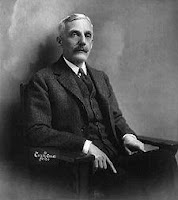
Good Food Tips
--------------
Dave Zinczenko
(Editor-in-Chief, Men's Health)
Two out of three people in America today are either overweight or obese. That means every time you sit down in an airplane or a packed movie theater, more likely than not you’re going to wind up as the lean center of a fat sandwich. But as you look right and left and see nothing but heft, you can’t help but think, What happened?
How did we all get so darn fat?
Well, the simple answer is that we eat more calories. The Centers for Disease Control and Prevention found that American men eat 7 percent more calories than they did in 1971; American women eat a whopping 18 percent more—an additional 335 calories a day! But the harder question is this: Why do we eat so many more calories? Are we suddenly more gluttonous? Do we have some kind of collective death wish? Is the entire country hellbent on qualifying for the next season of Biggest Loser?
No. There’s an even crazier reason ....
It’s the food!
We’ve added extra calories to traditional foods, often in cheap, mass-produced vehicles like high fructose corn syrup. These new freak foods are designed not by chefs, but by lab technicians packing every morsel with maximum calories at minimum cost—with little or no regard to dietary impact. Indeed, Eat This, Not That! 2011 has uncovered the truth about some of your favorite fast food and grocery store items and how they're causing you to pack on unnecessary pounds. It’s enough to kill your appetite, which—in these cases, anyway—would be a good thing.
THE FAST-FOOD HAMBURGER:
-----------------------
The great American staple. Don’t worry, burgers really do come from cows—but have you ever wondered how those giant chains process and distribute so much meat so cheaply? And . . . are you sure you want to know?
The Truth: Most fast-food hamburger patties begin their voyage to your buns in the hands of a company called Beef Products. The company specializes in taking slaughterhouse trimmings—heads and hooves and the like—that are traditionally used only in pet food and cooking oil, and turning them into patties. The challenge is getting this byproduct meat clean enough for human consumption, as both E. coli and salmonella like to concentrate themselves in the fatty deposits.
The company has developed a process for killing beef-based pathogens by forcing the ground meat through pipes and exposing it to ammonia gas — the same chemical you might use to clean your bathroom. Not only has the USDA approved the process, but it's also allowed those who sell the beef to keep it hidden from their customers. At Beef Products’ behest, ammonia gas has been deemed a “processing agent” that need not be identified on nutrition labels. Never mind that if ammonia gets on your skin, it can cause severe burning, and if it gets in your eyes, it can blind you. Add to the gross-out factor the fact that after moving through this lengthy industrial process, a single beef patty can consist of cobbled-together pieces from different cows from all over the world—a practice that only increases the odds of contamination.
Eat This Instead: Losing weight starts in your own kitchen, by using the same ingredients real chefs have relied on since the dawn of the spatula. (Here are the 15 best dishes for quick and easy weight loss.) If you’re set on the challenge of eating fresh, single-source hamburger, pick out a nice hunk of sirloin from the meat case and have your butcher grind it up fresh. Hold the ammonia.
PREMADE GUACAMOLE:
--------------------
When you buy bean dip, you expect it to be made from beans. And when you buy guacamole, it seems reasonable to expect it to be made from avocados. But is it?
The Truth: Most guacamoles with the word “dip” attached to the label suffer from a lack of real avocado. Take Dean’s Guacamole, for example. This guacamole dip is composed of less than 2 percent avocado; the rest of the green goo is a cluster of fillers and chemicals, including modified food starch, soybean oils, locust bean gum, and food coloring. Dean’s is not alone in this offense. In fact, this avocado caper was brought to light when a California woman filed a lawsuit against Kraft after she noticed “it just didn’t taste avocadoey.”
Eat This Instead: Avocados are loaded with fiber and heart-healthy monounsaturated fats. Trading the good stuff in for a bunch of fillers is cheating both your belly and your tastebuds. Either look for the real stuff (Wholly Guacamole makes a great guac), or mash up a bowl yourself. Scoop out the flesh of two avocados, combine with two cloves of minced garlic, a bit of minced onion, the juice of one lemon, chopped cilantro, one medium chopped tomato, and a pinch of salt.
Bonus Tip: Unlike packaged-food manufacturers, fast-food and sit-down
restaurants don't typically rely on chemicals to enhance flavor. Instead, they pack in sugar and sodium, calorie counts be damned.
FRUIT-ON-THE-BOTTOM YOGURT:
-----------------------------
It seems like the ideal breakfast or snack for a man or woman on the go—a perfect combination of yogurt and antioxidant-packed fruits, pulled together in one convenient little cup. But are these low-calorie dairy aisle staples really so good for you?
The Truth: While the yogurt itself offers stomach-soothing live cultures and a decent serving of protein, the sugar content of these seemingly healthy products is sky-high. The fruit itself is swimming in thick syrup—so much of it, in fact, that high-fructose corn syrup (and other such sweeteners) often shows up on the ingredients list well before the fruit itself. And these low-quality refined carbohydrates are the last thing you want for breakfast—Australian researchers found that people whose diets were high in carbohydrates had lower metabolisms than those who ate proportionally more protein. Not to mention, spikes in your blood sugar can wreck your short-term memory, according to a study in the European Journal of Clinical Nutrition. Not what you need just before your urgent 9 a.m. meeting with the boss!
Eat This Instead: Plain Greek-style yogurt, mixed with real blueberries. We like Oikos and Fage brands—they’re jacked with about 15 to 22 grams of belly-filling protein, so they’ll help you feel satisfied for longer. And blueberries are another great morning add — scientists in New Zealand found that when they fed blueberries to mice, the rodents ate 9 percent less at their next meal.
Bonus Tip: Daily e-mails (or tweets) that contain weight-loss advice remind you of your goals and help you drop pounds, according to Canadian researchers. We're partial to our own Eat This, Not That! newsletter, and to the instant weight-loss secrets you'll get when you follow me on Twitter (twitter.com/davezinczenko).
REDUCED-FAT PEANUT BUTTER:
----------------------------
Nothing makes a PB&J feel less indulgent like a scoop of low-fat Jif. It’s low fat, so it must be better for you . . . right?
The Truth: A tub of reduced-fat peanut butter indeed comes with a fraction less fat than the full-fat variety—they’re not lying about that. But what the food companies don’t tell you is that peanut oil—the fat in peanut butter—is a heart-healthy monounsaturated fat that can actually help fight weight gain, heart disease and diabetes! Instead, they’ve tried to cash in on the “low-fat” craze by replacing that healthy fat with maltodextrin, a carbohydrate used as a filler in many processed foods. This means you’re trading the healthy fat from peanuts for empty carbs, double the sugar, and a savings of a meager 10 calories.
Eat This Instead: The real stuff: no oils, fillers, or added sugars. Just peanuts and salt. Smucker’s Natural fits the bill, as do many other peanut butters out there. We especially like Peanut Butter & Co. Original Smooth Operator and Original Crunch Time.
Bonus Tip: The average American drinks 450 calories a day—a quarter of the calories you're supposed to consume during an entire day!
** [General]
EAT-RIGHT RULE: If your food can go bad, it's good for you. If it can't go bad, it's bad for you. **
---------------------




































